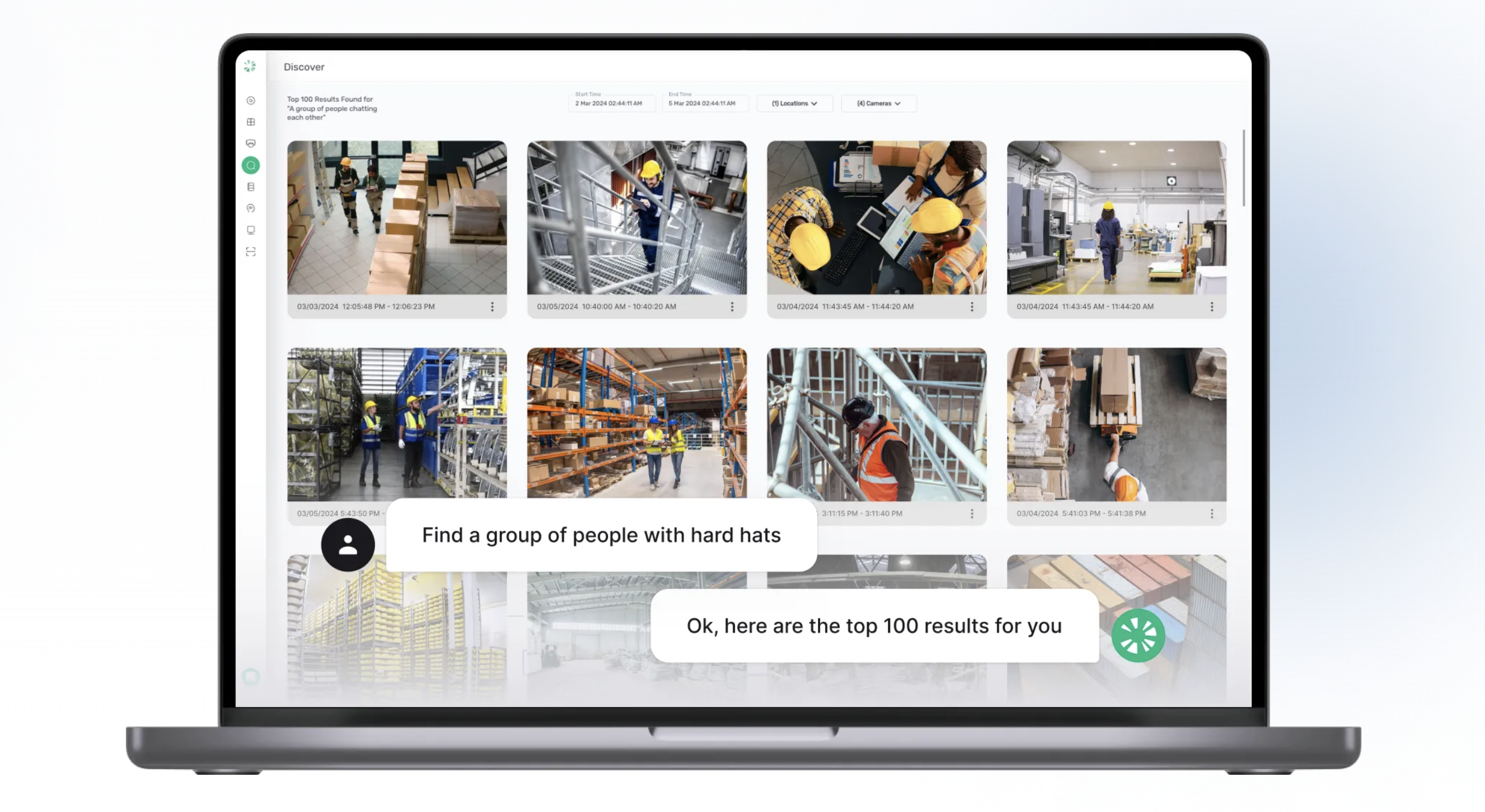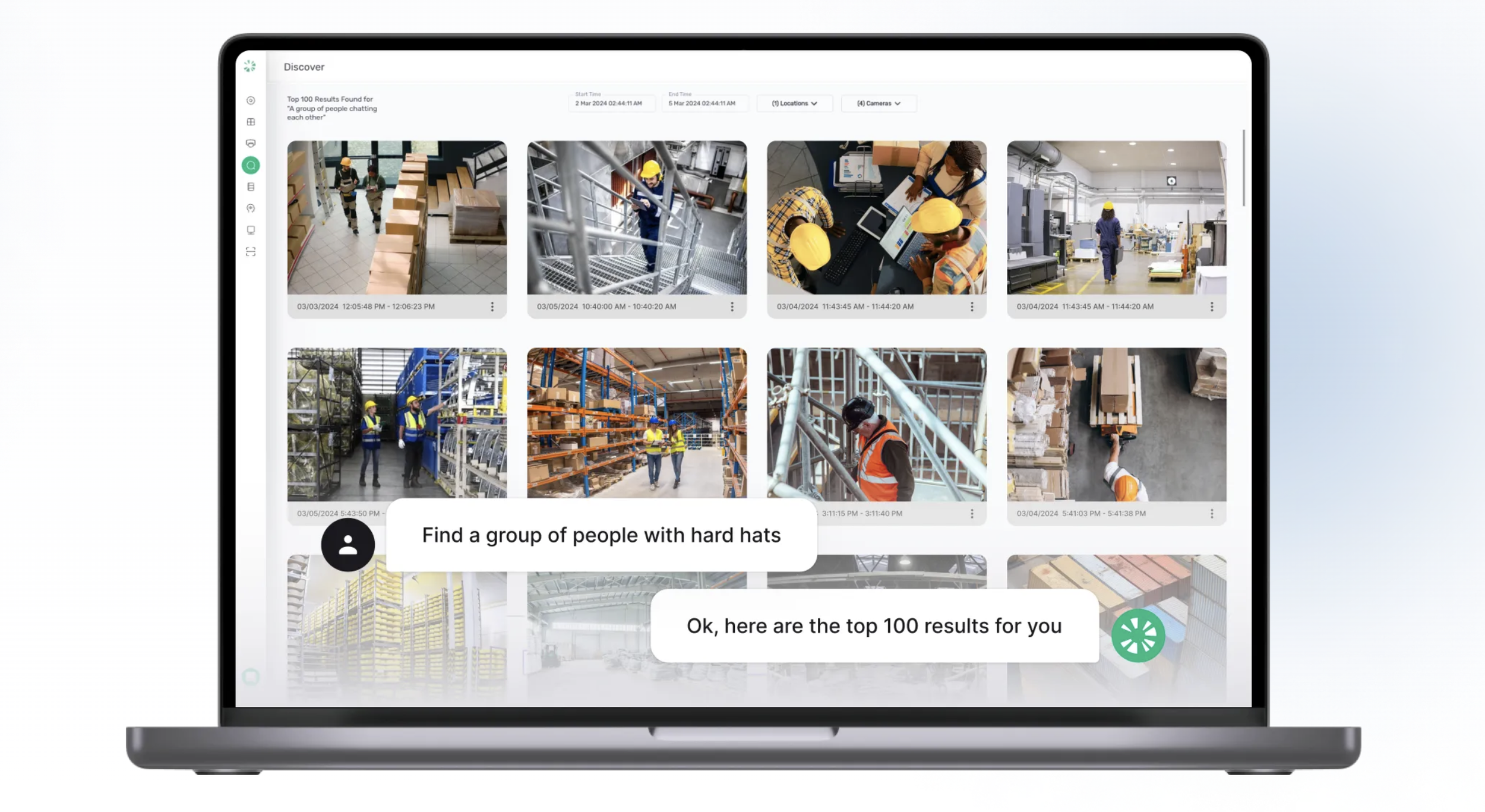Why we invested in Coram.ai

There’s a good chance that you can see a security camera from where you sit right now. The rise of video surveillance is well known – but the technology has failed to keep up with recent advances in video, from capture to transmission to search. Today, countless users spend hours manually reviewing the grainy footage they export from a physical DVR – and, after going through that frustration, often fail to find the crucial frame that could perhaps resolve an incident.
There are over 1bn CCTV cameras in the world (excluding China), capturing several trillion hours of video every year, and representing a market worth $70bn globally. Office buildings, schools, retail stores, warehouses and manufacturing facilities all have cameras and other sensors installed to monitor people and activities - with the goal of improving safety, reducing theft and increasing operational efficiency.
Yet software has been slow to “eat the world" when it comes to video security - in the past decade, camera features and quality have dramatically improved and prices have plummeted, but the software to manage and extract insights from the footage remains extremely primitive - 98% of businesses use incumbent systems with legacy, non-intuitive interfaces and little-to-no indexing or intelligence.
At Mosaic, our thesis centres on the application of machine intelligence to large B2B software categories. In the video security market, the opportunity is large and growing - to leverage the latest AI to understand data from every camera and sensor in real-time, and turn them into proactive virtual employees able to oversee a building or facility, ensure safety, suggest improvements, and alert for unexpected events.
Today, only ~3% of video security cameras and sensors in the US are cloud connected; this is projected to grow to nearly 30% in the next 5 years as IT departments look to reduce the cost of on-premise infrastructure, and users demand easier-to-use interfaces. In addition, there has been high profile government-level pushback against using Chinese cameras within the US due to security concerns - while Hikvision was the no.1 camera seller over the past 5-10 years, the next decade will look very different.
Along comes Coram.ai - a next-generation B2B video intelligence startup whose mission is to transform physical spaces into intelligently managed environments. Coram’s product connects to any IP camera with a quick and easy installation, and delivers an intuitive user interface to view and manage video footage. However, the real step-change comes in its advanced detection and analytics capabilities, enabled by the most recent technological developments in AI. Building on top of OpenAI’s open source CLIP model, Coram delivers advanced image indexing capabilities and natural language image search. The clustering index is trained on Coram’s own customer data (~10m images) to provide better search performance vs. the core model itself – creating a strong and inherent moat that deepens over time. As a result, the product has the capability to analyze video footage in real-time, detect objects, recognize faces, and identify suspicious activities or anomalies. It also offers automated advanced video analysis to provide ongoing insights into what is happening on the ground - imagine providing every customer without a million pairs of eyes to measure and evaluate every part of a company’s operations.
The founding team behind the product are serial entrepreneurs and brilliant technologists in the field of AI and video. Ashesh Jain, co-founder and CEO, previously led the Autonomy and AI programme for self-driving at Lyft, after completing a PhD in computer science at Cornell; he was also a visiting research scholar at the Stanford AI Lab. Peter Ondruska, co-founder and CTO, sold his Augmented Reality startup to Lyft in 2018 after completing a PhD at Oxford University in Robotics. They have worked together on multiple ventures since leaving Lyft in 2021, and started working on the Coram product itself earlier this year. Since then, the product has already caught the attention of US customers across a variety of sectors, including supply chain and logistics, education (public & private schools), retail and hospitality. They are continuing to expand their feature set at a rapid pace to enable greater use cases for these customers over time, having already reached feature parity with their primary venture-backed competitors in this space - and surpassed in their advanced AI capabilities. Next will be the ingestion of multi-modal data about physical spaces and the provision of deep business insights.
We are confident the team has the right technical capabilities and execution firepower to transform video security – from a pure cost-centre for businesses, into an essential value creation service. They are already one of the fastest growing applied AI companies in our portfolio. We are thrilled to partner with Ashesh and Peter on this journey to make that vision a reality, working together with our friends at 8VC.

